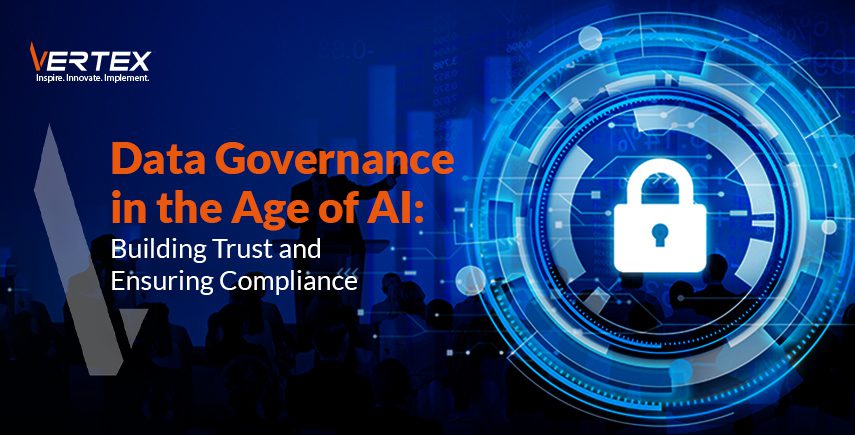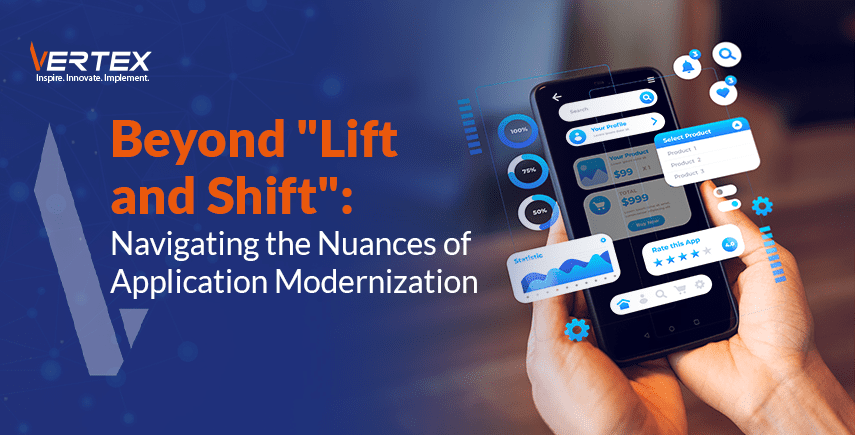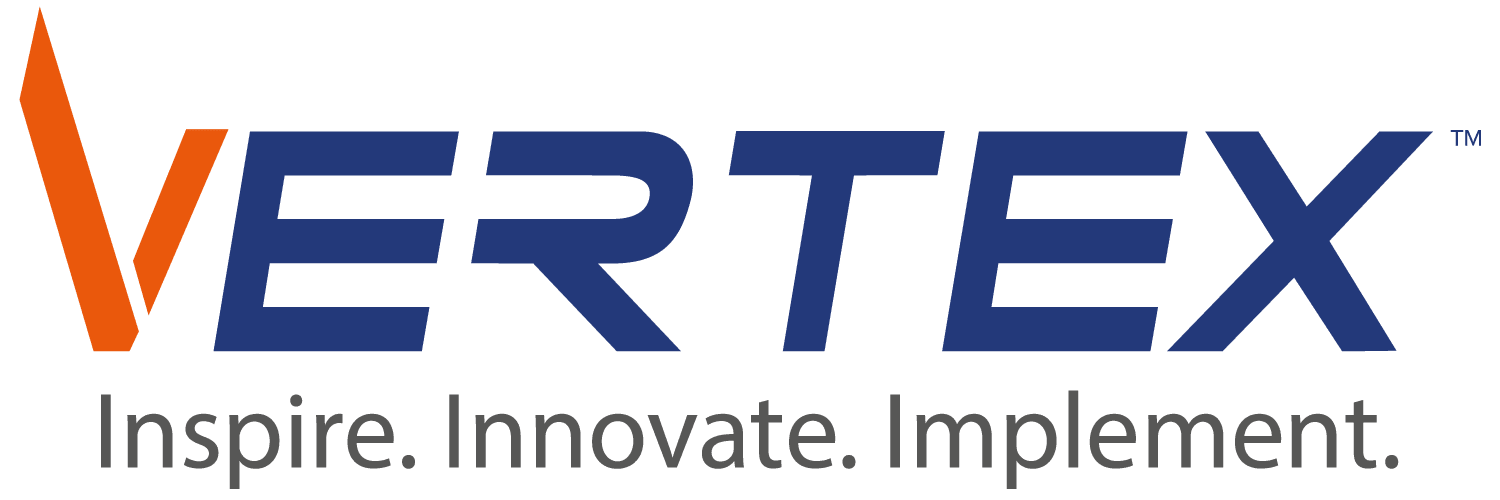
Mani Pattathil
May 19, 2025Data Governance in the Age of AI: Building Trust and Ensuring Compliance
AI is the next chapter in our development.
We are integrating AI into our daily lives, and the possibilities are endless.
From helping us write emails to breaking down complex equations, we are relying on AI to do our work for us.
We can get personalised query resolutions and scientific breakthroughs, all with AI.
The only major concerns regarding AI are the ethical deployment and the security concerns regarding the data being used by AI.
Deployment of AI models comes with a lot of paperwork and responsibility; you have to ensure there are no security issues, data leaks, or ethical barriers.
To sum it all up, you can not deploy any AI model without robust governance and a proper framework of contingencies.
In this article, you will understand the role of data governance in the functioning of AI, as well as the importance of trust and compliance from organisations globally and regulatory bodies worldwide.
Data Can Make or Break AI
All physical matter is made up of atoms. Similarly, AI is powered and built using data.
According to research by Exploding Topics, the sheer amount of data created in a single day on a global scale is 402.74 million terabytes.
This data is nothing when compared to the large datasets used for training LLMs.
This number will keep on increasing, and that is the alarming point, since most of this data is ungoverned and not structured, which can be harmful and can eventually lead to a data breach.
Suppose the data is unstructured and full of malware.
In that case, the AI models that are trained using this data will be biased and have inaccurate predictions, which will eventually result in losing the trust of the stakeholders and consumers.
According to a study conducted by Gartner, poor data quality costs organizations an average of $12.9 million per year.
Since data is the new oil, there is increasing scrutiny and rules surrounding data privacy and the ethical use of said data.
This has reinvented the way organisations used to approach data governance.
Regulatory bodies, such as the General Data Protection Regulation (GDPR) in Europe and the Personal Data Protection Bill in India, have imposed strict rules on data handling.
Any organisation that chooses not to adhere to these rules will face heavy fines and lawsuits, which can damage the public image of that organisation.
According to a report published by Compliancy Group, the average cost of a data breach globally reached $4.24 million.
If we look at this from the context of Artificial Intelligence, then breaches in the training data can have harmful consequences, such as exposing sensitive information that is embedded in the model.

Now you understand why there is a need for effective data governance for AI.
This governance needs to be disciplined on both the ethical and technical fronts, and there should be a framework made so that implementation and adherence can take place swiftly.
The framework should include policies, procedures, contingencies, and responsibilities that govern the entire data used in AI from the acquisition of the data to its deployment and ongoing testing as well.

Key Pillars of Data Governance in the AI Era
The performance of AI is directly proportional to the quality of data on which the AI model is trained.
Hence, good quality and accurate, consistent data is the most important for creating a trustworthy AI model.
Now, to attain such high-quality data, one has to do extensive data cleansing and standardization of raw data.
If the data is accurate, there will be little to no prediction errors, and the decisions taken by the model will be better.
For this very reason, the framework of data governance should include clear data ownership and data quality metrics, and there should be checks to identify and correct any and all data anomalies.
Data Security and Privacy
Any data governance framework should prioritize protecting the sensitive data used to train and operate the AI model.
To protect this data, there must be strict security measures, data encryption must be used during transit, rest, and deployment of the AI model, and periodic security audits should be conducted as well.
Compliance should be checked on a regular basis to make sure there is no data breach in the future.
According to a survey conducted by Cisco on Consumer Privacy, it was revealed that 63% of consumers believe AI can be useful in improving their lives, and 59% say strong privacy laws make them more comfortable sharing information in AI applications.
Data Lineage and Transparency
If you want to have quality data, then you must track the origin of all your incoming data.
This helps identify the right sources and tells you which origin points can present you with faulty data.
Any good data governance framework must include data lineage tracking systems, which help in providing a clear and documented history and origin of all data that is being used in the training of the AI model.
Doing this, we can avoid any future biases in data processing and also help explain the AI decision-making process.
For a better overall functionality and results tracking, the origin and the journey of the data are of utmost importance.
Ethical Considerations and Bias Mitigation
AI models are transparent in their processing; if there are any biases present in the data fed to them during their training period, then they will reflect and amplify them in their results.
Therefore, data governance must include ethical considerations in its framework.
Additionally, guidelines should help identify and rectify biases, such as data augmentation and proper monitoring of the AI model to ensure fairness to all demographic groups and races.
Accenture published a report according to which 63% of executives believe AI ethics will become increasingly important in the next three years.
Accountability and Responsibility
Accountability is important when we are overlooking such an important task.
Similarly, we can only perform each check and measure when there is accountability and responsibility.
For this to follow, there should be proper delegation of tasks such as checking data quality, tracking the origins of data, and AI ethical checks.
Allocation of these responsibilities to a specific person or department is necessary for smooth operation.
This means there should be data stewards, a person for checking the AI ethics, and a compliance team overseeing all the different teams, making sure that everyone is doing their tasks properly.
Compliance and Regulatory Adherence
The data governance framework is built to easily navigate the rapidly evolving pace of AI.
However, to prevent malpractice, organisations need to establish policies and SOPs to ensure proper compliance with government laws.
Organizations like the GDPR and the anticipated Personal Data Protection Bill in India are responsible for overseeing the functional and ethical deployment of AI worldwide.
They are also responsible for data breaches and regulatory audits to ensure everything runs smoothly.
Challenges in Implementing Data Governance for AI
Even though the need for a data governance authority is dire in the world right now, proper implementation of such an authority still presents complications.
- Data Silos: Data is never processed and available at a singular location, which makes it tough for getting a holistic view and to apply government policies on unstructured data.
- Data Volume and Velocity: The current traditional data management capabilities are not able to handle the sheer amount of data processed in a single day. Also, the data sets used by AI models are huge; they need better and modified data management facilities.
- Evolving AI Techniques: Since the AI landscape is changing rapidly, the current governance framework is struggling to keep up. We need an adaptive framework that can be useful even in today’s fast-paced AI landscape.
- Lack of Expertise: There are not a lot of people who are skilled in data governance and AI ethics, which makes it tough to actually implement these standards worldwide.
Best Practices for Building Trust and Ensuring Compliance
Now that we know the pain points of data governance, we can remedy them, and some of the ways that we can do that are mentioned below.
- Establish a Cross-Functional Data Governance Council: There should be one council containing stakeholders from different companies and sectors to come together and create governance policies and ensure their proper implementation.
- Develop Clear and Comprehensive Data Governance Policies: The policies developed by these councils should be clear and to the point and should address data quality, ethics, privacy, and accountability.
- Implement Ethical AI Frameworks: We should start implementing frameworks that guide us in the ethical development of AI. Also, there should be bias detection and mitigation strategies.
- Continuously Monitor and Audit AI Systems: Regular checks for performance bias, ethical accuracy, and compliance should ensure that there are no inconsistencies.
Conclusion
Artificial intelligence is a power that can not be used unchecked, since most nations are rapidly progressing on the AI front.
There is an urgent need for a data governance framework that can keep up with the ever-changing AI scene.
This framework will include ethical deployment, data security, privacy, and compliance with government rules.
When we prioritise these things, we can achieve so much more.
The journey requires continuous adaptation and a commitment to ethical principles; however, once this is achieved, we will be able to harness the full potential of AI.

Recent Blogs

19 May, 2025

19 May, 2025

12 May, 2025

5 May, 2025

28 April, 2025

21 April, 2025

14 April, 2025

7 April, 2025
Recent News

2 February, 2025

14 November, 2024

4 November, 2024

1 August, 2024

6 March, 2024

28 February, 2024

12 June, 2023



